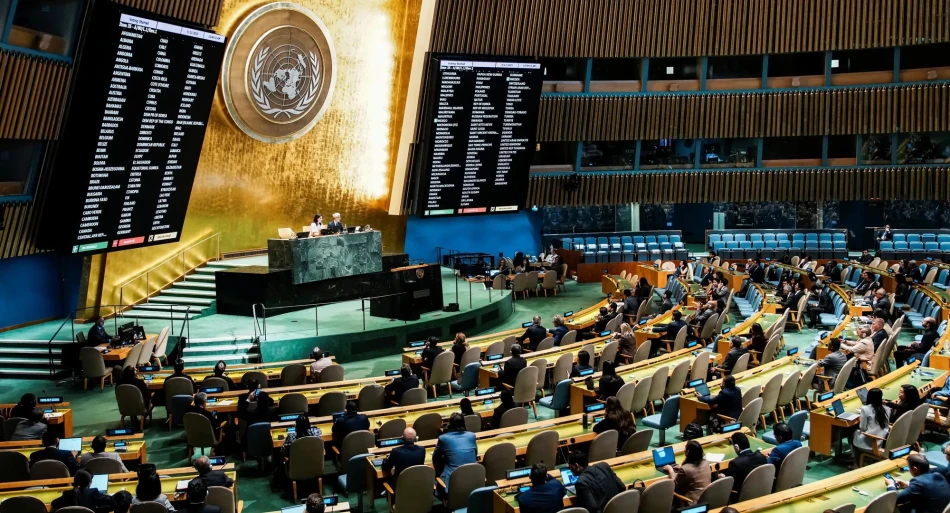
UN General Assembly Backs Palestinian Statehood, Excluding Hamas Faction
UN General Assembly Passes Historic "New York Declaration" Backing Two-State Solution While Isolating Hamas
The United Nations General Assembly has adopted a groundbreaking resolution that could reshape Middle East diplomacy by explicitly endorsing the two-state solution while categorically rejecting Hamas as a legitimate partner for peace. The "New York Declaration," passed with overwhelming support from 142 nations, represents the most decisive international stance on Palestinian-Israeli negotiations in years, effectively sidelining the Gaza-based militant group from future diplomatic processes.
A Decisive Vote Against Hamas
The resolution passed with a commanding majority of 142 votes in favor, while only 10 countries—including Israel and the United States—voted against it. Twelve nations abstained from the vote, highlighting the complex diplomatic calculations surrounding Middle East policy.
What makes this declaration particularly significant is its unambiguous condemnation of Hamas and explicit demand for the organization to disarm. This language goes beyond typical UN diplomatic rhetoric, representing a clear attempt to isolate Hamas from any future peace negotiations while maintaining support for Palestinian statehood aspirations.
Strategic Implications for Regional Diplomacy
Reshaping Palestinian Representation
By explicitly excluding Hamas while supporting Palestinian statehood, the declaration effectively endorses the Palestinian Authority as the sole legitimate representative of Palestinian interests. This position aligns with long-standing Western diplomatic preferences but may complicate internal Palestinian politics, where Hamas maintains significant influence in Gaza.
International Coalition Building
The overwhelming support for the resolution demonstrates a growing international consensus around marginalizing militant groups while pursuing diplomatic solutions. This approach mirrors successful international strategies used in other conflicts, where peace processes advanced only after extremist factions were sidelined.
Historical Context and Precedent
The "New York Declaration" builds on decades of international law and UN resolutions supporting the two-state solution, but breaks new ground in its explicit rejection of Hamas. Previous UN resolutions typically avoided naming specific groups, preferring broader condemnations of violence.
This shift reflects lessons learned from other peace processes, including Northern Ireland and South Africa, where progress accelerated once militant factions were either integrated into political processes or completely marginalized. The UN appears to be betting that isolating Hamas while supporting moderate Palestinian leadership will create conditions for meaningful negotiations.
Challenges Ahead
Implementation Realities
While the declaration carries significant moral and diplomatic weight, its practical implementation faces substantial obstacles. Hamas continues to govern Gaza and commands considerable military capabilities, making its complete marginalization difficult without addressing underlying grievances that fuel its support base.
Regional Power Dynamics
The resolution's success will largely depend on regional powers' willingness to enforce its provisions. Countries like Egypt, Jordan, and Saudi Arabia—which have historically mediated Palestinian-Israeli disputes—will play crucial roles in determining whether this diplomatic initiative translates into concrete progress.
The "New York Declaration" represents a calculated diplomatic gamble: that isolating extremist elements while reinforcing international support for Palestinian statehood will create new momentum for peace. Whether this approach succeeds will depend on the international community's commitment to sustained engagement and the willingness of moderate voices on both sides to seize this diplomatic opportunity.
Most Viewed News

 Sara Khaled
Sara Khaled






